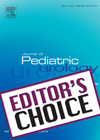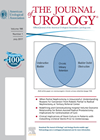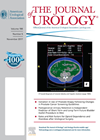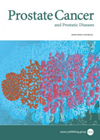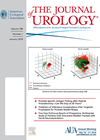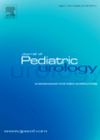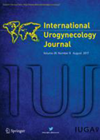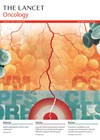
Journal Reviews
Non-antibiotic options for recurrent UTI
Recurrent urinary tract infection (UTI) imposes a heavy burden on health services. By definition recurrent UTI is two infections in six months or three in one year. The annual incidence of single UTI is 30 per 1000 women. The Scottish...
Treatment of varicocele in children and adolescents
Varicocele occur in about 15% of all adolescents. These authors searched Medline, Embase and a number of platforms reporting on varicoses in children and adolescents, including only randomised controlled trials with patients under 21 years. After an initial 198 studies...
Prostate cancer screening
This editorial is from the University of Minnesota in the USA. The present evidence suggests that prostate specific antigen (PSA) testing provides a small reduction in prostate cancer (CaP) mortality and no reduction in all-causes mortality. The downside is of...
Urologists beware!
This article recounts the story of a Californian urologist who was shot dead two decades later by a patient who was diagnosed with stricture of the urethra. The patient underwent surgery for urethral stricture in 1992 by a team (ironically,...
When partial nephrectomy is unsuccessful
With increasing use of partial nephrectomy (PN) to treat complex T1 tumours, the risk of conversion to radical nephrectomy (RN) increases. In this study the authors look at the incidence of conversion of robotic PN (RPN) to RN and analysed...
Ureterocystostomy – novel surgery for the paediatric obstructed megaureter
Megaureter is a relatively common congenital urinary tract anomaly; obstructed non-refluxing megaureter is one variant. Initial management is conservative, with operative intervention reserved for symptomatic cases (recurrent pyelonephritis, pain, increasing dilatation or worsening renal function). Surgical options include cutaneous ureterostomy,...
MRI targeted transperineal prostate biopsy: a local anaesthetic approach
Transperineal template biopsy remains the gold standard investigation in diagnosis of prostate cancer. Data from the PROMIS study demonstrated the low sensitivity of transrectal ultrasound (TRUS) biopsy as a diagnostic tool, and highlighted the need for a better diagnostic pathway....
UTI Care – antibiotics or NSAIDs?
This is the cover story of a recent issue of the BMJ. As per the World Health Organization (WHO), antibiotic resistance is becoming a major economic and global problem. This is a randomised, double-blind study from 17 general practices in...
Solifenacin for children and adolescents with overactive bladders
Solifenacin (VESIcare®) is the second-line anti-muscarinic medication of choice for my patients with overactive bladder (oxybutynin being my initial choice). However, currently, it remains unlicensed for use in children. Newgreen et al. have evaluated the long-term safety and efficacy of...
Bladder perforation after augmentation cystoplasty
Delayed bladder perforation is well recognised after augmentation cystoplasty (5-13% of patients) and adult urologists need to be aware of this and identify the best treatment at the time. Mortality rates and re-perforation rates can be up to 25% and...
What are the long-term outcomes of TOT and TVT procedures?
This is a systematic review between 2000 and 2016 evaluating the efficacy and safety of midurethral sling (MUS) procedures in women. Studies were included if the follow-up data was five years or more. Objective cure rates showed no significant difference...
Prostate biopsy and survival
Talk to many urologists and the axiom is “you are more likely to die with prostate cancer than from it”. This study was conducted on Danish men between 1995 and 2011. The observations are: 1) Cumulative prostate cancer – specific...


